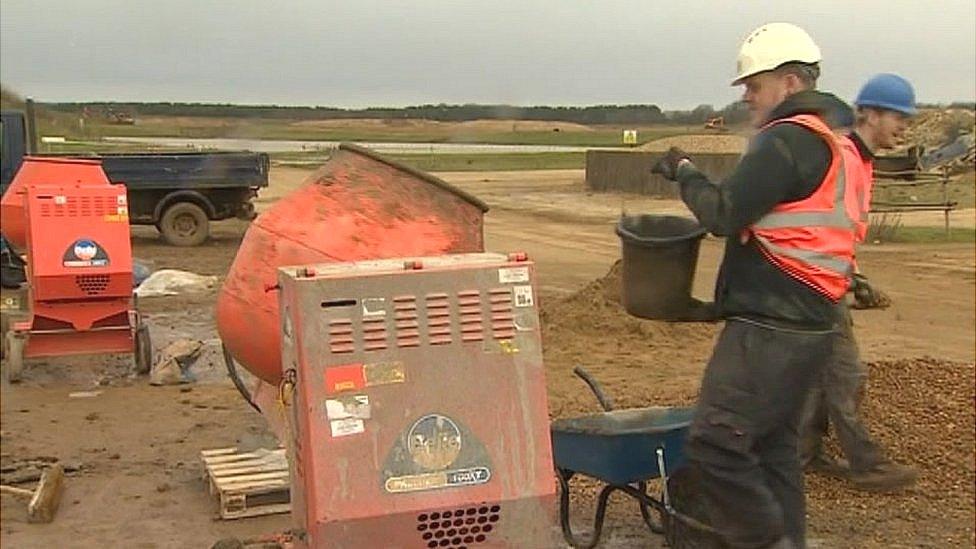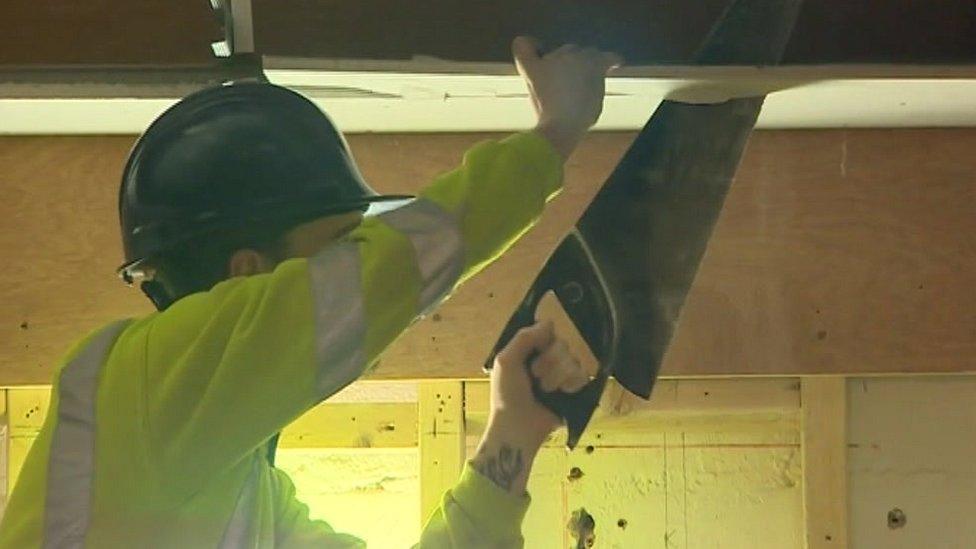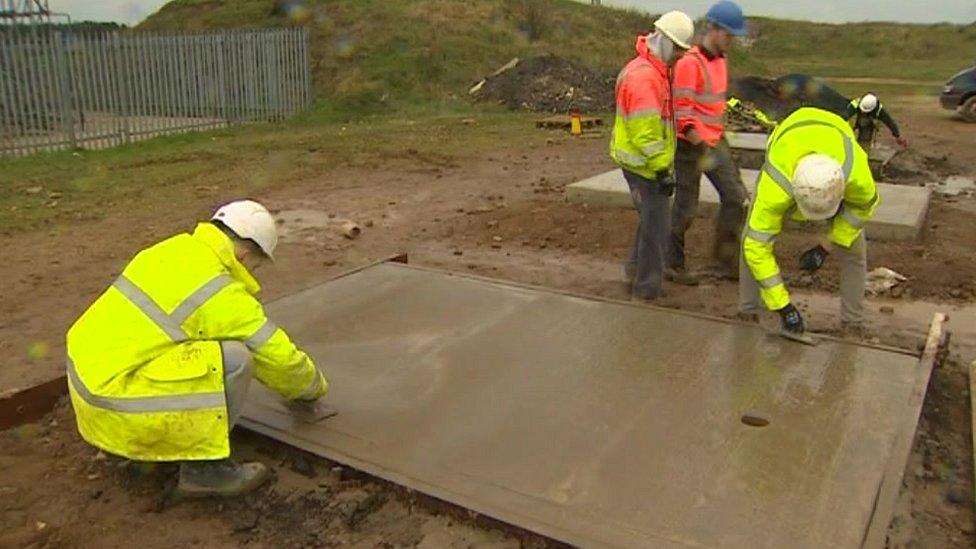Construction Industry Training Board 'to shed jobs'
- Published

Construction trainees at the CITB in Norfolk
The construction industry's main training body could shed "hundreds of jobs", union officials warn, amid plans to shut offices.
The Construction Industry Training Board (CITB) is planning to shut its offices and college at Bircham Newton, Norfolk, by the end of 2019.
The CITB, which is funded by a levy on building firms, will no longer carry out specialist in-house training.
The CITB would not comment on the extent of any job losses.
In future, the body will oversee training by external private sector providers.

Offices in London, Scotland and Wales will be set up to oversee partnership training
Unite national officer Jerry Swain said the plans were a "hammer blow for the construction industry and for the workers at the CITB".
In a statement Sarah Beale, CITB chief executive, said: "Construction needs to modernise and CITB is no exception.
"I'm confident in our commitment to becoming a more representative, accountable and reliable 'levy in, skills out' organisation."
She added: "We are doing everything we can to minimise the impact on people here" but would not comment on the extent of any job losses.
The firm employs about 600 staff in Norfolk and 1,400 in total nationwide.
A government review, external of the CITB found that although construction employers and trade associations voted for the industry levy to continue, there was heavy criticism of how it currently operates.

The training college will go and the CITB will stop in-house training from 2019
The CITB said in future it would use levy money to "ensure a sustainable training and development market, only intervening to provide a service where it is unavailable on the market, or not to the quality level that is sought."
The changes were criticised by the MP for north-west Norfolk, Sir Henry Bellingham as "ill-thought-out, very poorly costed" adding "world-class facilities" at Bircham could be lost.
He added: "It really does seem completely perverse that at a time when the industry needs more specialist skills and more innovative re-skilling, the CITB are thinking of completely pulling out of Bircham,"
The union said it doubted "if any private provider could or would provide the same level of training at the same cost".
Unite said it would now be seeking the views of members to see what action could be taken to "defend the hundreds of job losses".

Analysis
By BBC East Business Correspondent Richard Bond
The CITB at Bircham Newton has had to battle for survival on a number of occasions over the past 25 years.
Its location in west Norfolk is both a strength and a weakness. The former RAF station provides plenty of space for apprentices from all over the country to learn their trade.
But it is a remote site full of ageing former buildings and difficult to modernise.
CITB is funded by a levy on building firms. That entitles them to send their trainees to west Norfolk.
But the introduction this year of the government's apprenticeship levy has muddied the waters.
Suddenly, large building firms are having to pay two levies - one to the CITB and one to the government.
Employers have therefore been putting pressure on CITB to cut costs and become more efficient.

- Published29 January 2014
